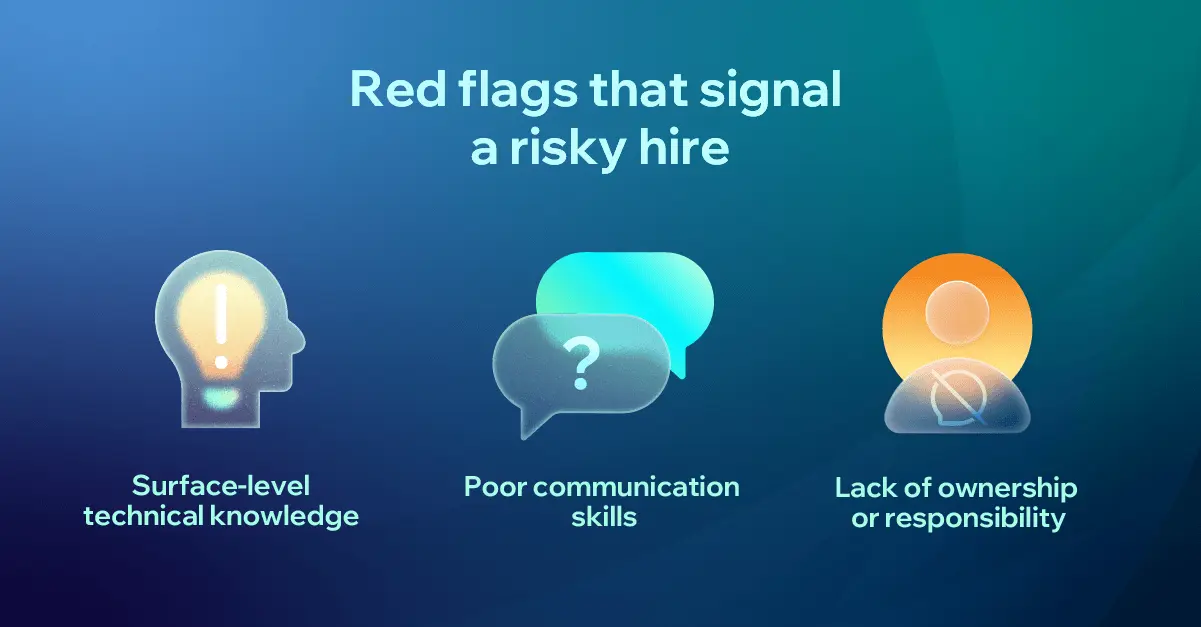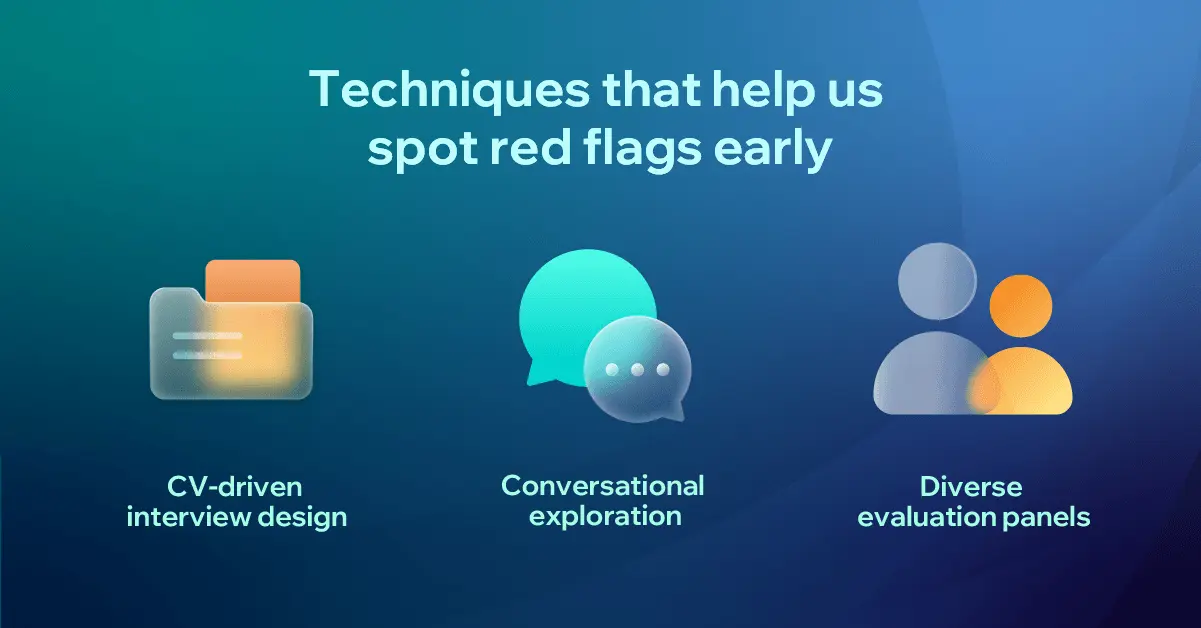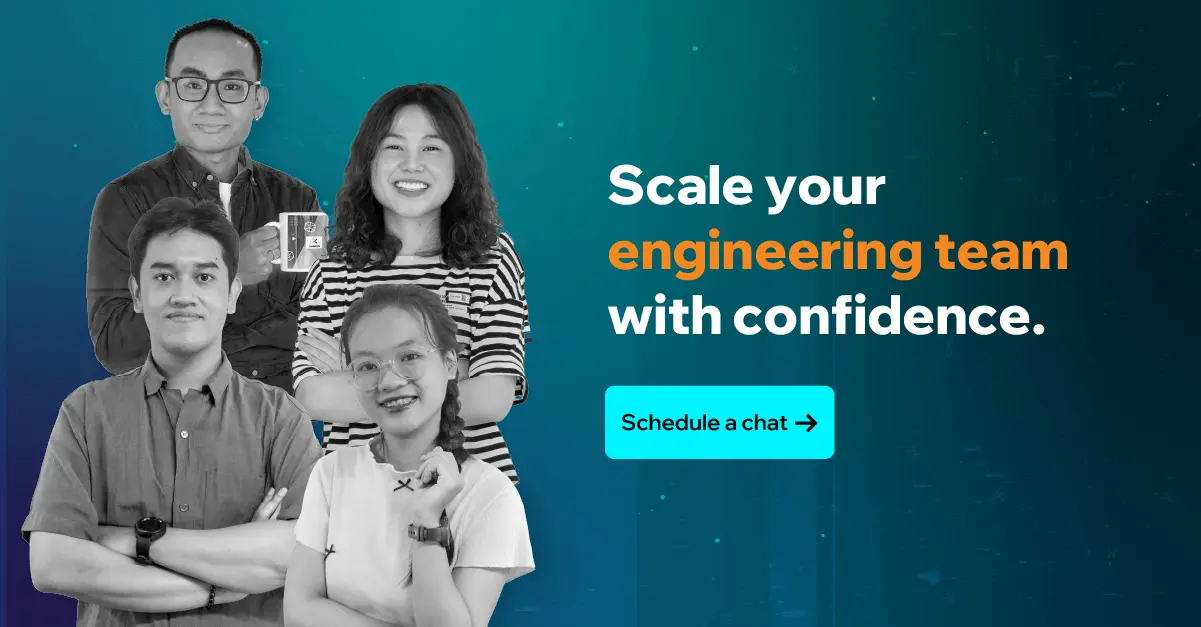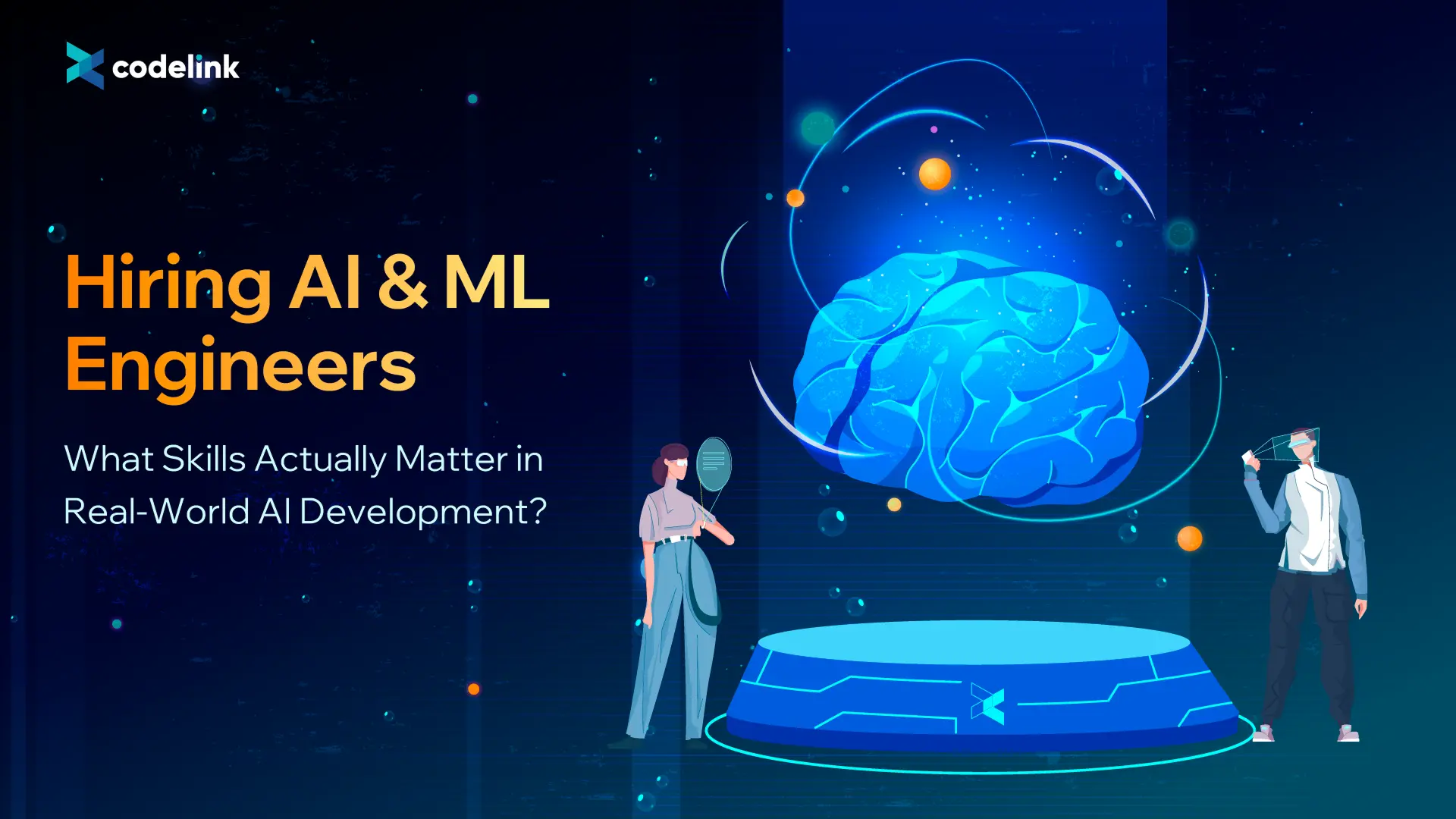The Cost of Bad Hires in Engineering: How to Spot Red Flags Before Making an Expensive Mistake
Bad engineering hires cost more than time and money; they impact team morale, project quality, and your credibility. Discover proven interview techniques to spot red flags early and hire with confidence.

Hiring an engineer who isn’t the right fit can cost far more than just time or money; it can stall your roadmap, lower team morale, and impact product quality.
At CodeLink, we hold ourselves to the highest standards and know that one bad hire can derail an entire project. In this article, we cover the key warning signs to watch for and the proven techniques that help you assess candidates thoroughly and hire with confidence.
The Hidden Costs of a Bad Engineering Hire
Bad hires cost more than money. They cost time, trust, and money.
When a new engineer doesn’t integrate well with the team or falls short technically, it creates bottlenecks. Projects slow down as others have to step in and fix mistakes or compensate for lost momentum. This doesn’t just frustrate the team but also adds pressure to those doing extra work.
In client-facing roles like ours, these issues are magnified. Delays and quality might impact the client’s bottom line, which in turn affects our credibility.
Even a single poor hire can disrupt the chemistry of a well-functioning team. This is especially true in engineering, where solutions or products are often built collaboratively and under tight timelines; any disruption will impact the quality of the project.
Red Flags That Signal a Risky Hire
At CodeLink, we not only provide software solutions to clients but also help them manage potential risks and propose the best possible approach, ensuring high-quality products that go beyond just customer requirements.
Therefore, we look beyond resumes and flashy portfolios. We’re searching for indicators and factors that fit the way we work, the problems we solve, and the standards we uphold.

1. Surface-Level Technical Knowledge
A candidate who can touch on many topics but lacks depth in one area can be concerning. While broad knowledge is valuable, we’ve found that depth is what drives quality. A solid foundation in core technologies allows engineers to troubleshoot, optimize, and guide the direction of a solution more effectively.
If a candidate does not have solid foundational knowledge and hands-on experience with the technologies they claim to know, it raises a red flag.
On the other hand, it would be outstanding if the candidate possessed both broad knowledge and deep expertise.
2. Poor Communication Skills
Technical talent alone isn’t enough. At CodeLink, our engineers collaborate closely with clients and internal teams. This could involve walking a client team through a proposed architecture or design reviews, and peer programming sessions with internal teams. Candidates who struggle to explain their thought processes, ask clarifying questions, or actively listen may create friction in any forum.
Clear and thoughtful communication is essential not just in meetings, but in every interaction and collaboration. When communication flows smoothly, it keeps everyone aligned and moves projects forward.
We recognize that interviews can be nerve-wracking. From many interviews, we’ve observed that some candidates respond briefly, not due to a lack of skill, but because of nerves or shyness. That's why we always create space for them to warm up and vary our questions to help them open up. However, if communication gaps remain throughout the conversation, this may indicate that they could struggle in our dynamic, collaborative environment.
3. Lack of Ownership or Responsibility
We don’t just build what the client asks for; we think critically and proactively about what’s right for their users and their goals. This requires engineers to take responsibility and invest in outcomes.
During interviews, we thoroughly explore real experiences that candidates mention in their resumes, such as how they’ve responded to challenges, made decisions, and handled failures. If there’s little sense of ownership or vague responses that avoid accountability, that’s a warning sign.
Techniques That Help Us Spot Red Flags Early
We treat hiring as a high-stakes process. Here are a few practices we’ve found effective:

1. CV-Driven Interview Design
We don’t rely on generic interview templates. Instead, we take the time to study each CV and craft specific questions related to the candidate’s stated experiences.
This approach not only shows respect for their background but also helps us evaluate how well they understand the tools and systems they’ve used, and whether those experiences are genuinely theirs.
2. Conversational Exploration
The most insightful interviews feel less like interrogations and more like collaborative technical conversations. While we begin with structured questions, we intentionally create space for free-form discussions based on the candidate’s responses.
This approach reduces nerves, breaks down initial barriers, and gives us a clearer view of how the candidate thinks, communicates, and engages with the topics they’re most familiar with.
3. Diverse Evaluation Panels
No hiring decision at CodeLink is made in isolation. Multiple team members evaluate the candidate independently, bringing different perspectives to the table.
This helps eliminate personal bias and ensures alignment with our team’s values and expectations.
Final Thoughts
Hiring software engineers isn’t just about finding the most intelligent person in the room; it’s about finding the right person for your team and your clients. Watch out for warning signs like shallow technical skills, poor communication, or a lack of ownership & responsibility.
By employing more insightful interview techniques, like designing questions around a candidate's CV, encouraging open-ended technical discussion, and involving diverse viewpoints in the evaluation process, you significantly increase the chances of finding the right engineers.
Why navigate the intricate landscape of talent acquisition on your own? Partnering with CodeLink offers a more assured path.

Our engineers are meticulously selected from the top 2% of talent in the market. They have deep technical expertise, strong communication skills, and a sense of ownership in their work. Whether you're filling gaps or scaling a product team, we’ve got the right experts.
Let’s help you scale with confidence. Schedule a quick chat with us today!

Hung Dang
Senior Full-stack Developer
Hung Dang is a skilled Senior Full-Stack Developer with seven years of experience. Excels in C#, JavaScript, and TypeScript, and their frameworks. He's adept in system architecture, microservices, cloud platforms, and enhances teamwork through communication.



